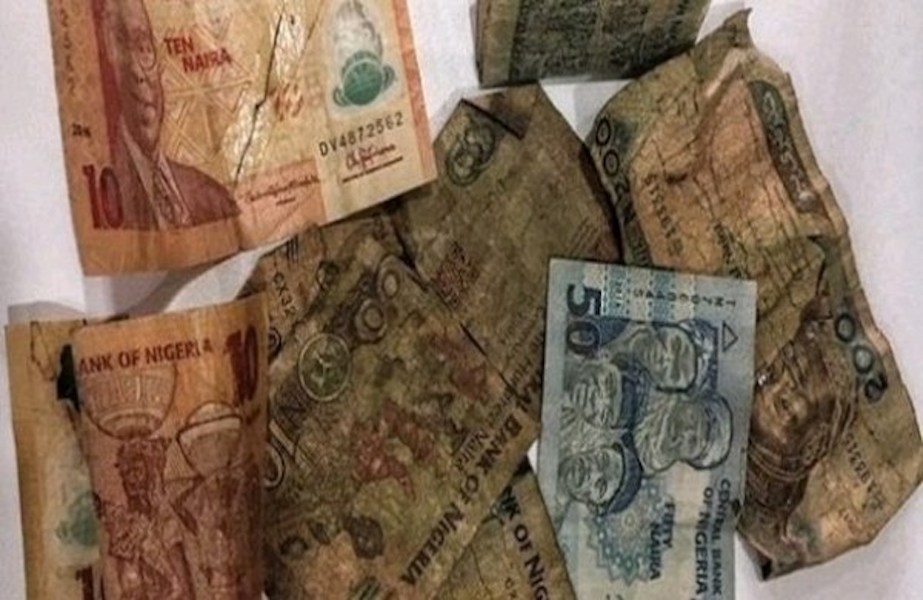Dirty Naira Notes and Covid-19

As the COVID -19 pandemic continues to spread across the globe with devastating effects on the global economy, the world must now than ever before unite to fight the unseen enemy. The COVID-19 virus has more than any other disease in recent history affected humanity with millions of people losing jobs and billions confined to their homes. The Virus has isolated man and indeed created cities without people. In Nigeria, the government needs to treat the pandemic very seriously and ensure it leaves no stone unturned in finding a lasting solution.
A lot of attention has been placed on social distancing and good hygiene as immediate solutions to curbing the spread of the COVID-19 Virus. Though these solutions seem to be preventing a drastic spike in the infection curve, embarking on social distancing and maintaining good personal hygiene as strategies cannot totally eradicate the Virus. Recent studies show the COVID-19 Virus can survive 48 hours on surfaces which implies that even if you keep a social distance and maintain good personal hygiene by merely coming in contact with a surface touched by an infected person you are likely to be exposed to the virus. This write-up pays special attention on how to curb the spread of the COVID-19 virus while transacting with a focus on how the virus can be spread through the exchange of banknotes. A recent study by (F.Vriesekoop et al 2010 ‘Dirty Money: an investigation into the hygiene status of some of the worlds currencies as obtained from food outlets”) shows that a lot of banknotes worldwide are filthy and ridden with bacteria.
The study which looks at banknotes from countries like United States of America, Burkina Faso and United Kingdom and Nigeria suggests a correlation between the number of bacteria present on a banknote and the economic prosperity of the country. It confirmed that the bacteria found present on the Nigerian Naira was much more than that present on the United States dollar. The study also emphasised that bacteria was more prevalent on lower denomination notes because they are more widely used. In addition, a connection was made between the volume of bacteria present on banknotes and the material used to make the currency. i.e. banknotes made of polymer had less presence of bacteria than cotton made banknotes.
If the COVID-19 virus which spreads via droplets of an infected individual can survive upward of 72 hours outside the human body then it risks being spread through banknotes while transacting business. Considering that Nigeria is a predominantly cash based economy this is something that needs to be taken very seriously by the government. The Chinese in suspecting the spread of COVID-19 by banknotes have began sterilising banknotes from COVID-19 prone areas with ultraviolet heat treatment. Given the volume of cash transactions in Nigeria one can only conclude that the country runs a greater risk of the virus spreading via banknotes if the infection rate in the country is not curbed. The Central Bank of Nigeria (CBN) should pay attention to the banknotes in the days ahead if we are to win the battle against the COVID-19 virus.
As at the 10th of April 2020 the number of cases reported by the Nigerian Centre for Disease Control (NCDC) states that the country has recorded 310 cases majority of them in Lagos state. If this situation escalates further the CBN might want to refresh banknotes and do a more aggressive promotion of its cashless policy. The current situation presents a perfect opportunity for the CBN to get a further buy in from the populace into its cashless policy thereby increasing financial inclusion. Payment modes that limit direct contact with physical cash (online banking and mobile banking) should be promoted more aggressively during this period.
Consumer Awareness and Financial Enlightenment Initiative (CAFEi), a non for profit organization focused on Research, Enlightenment, Advocacy for Consumer Protection with primary objectives to aid consumers in making safe, accurate and informed decisions on goods and services in all facets, including the Banking and Finance industry on previous occasions had called upon the CBN to commence the mopping up of dirty banknotes in circulation because of the impact it has on inflation, trade and the image of the country.
The advent of COVID-19 is yet another reason that CAFEi is calling on the CBN to revisit the matter again. This call is even more critical as it is a call to save humanity. CBN the call to action is now.
Otunba Debola Osibogun
President,
Consumer Awareness and Financial Enlightenment Initiative (CAFEi)

